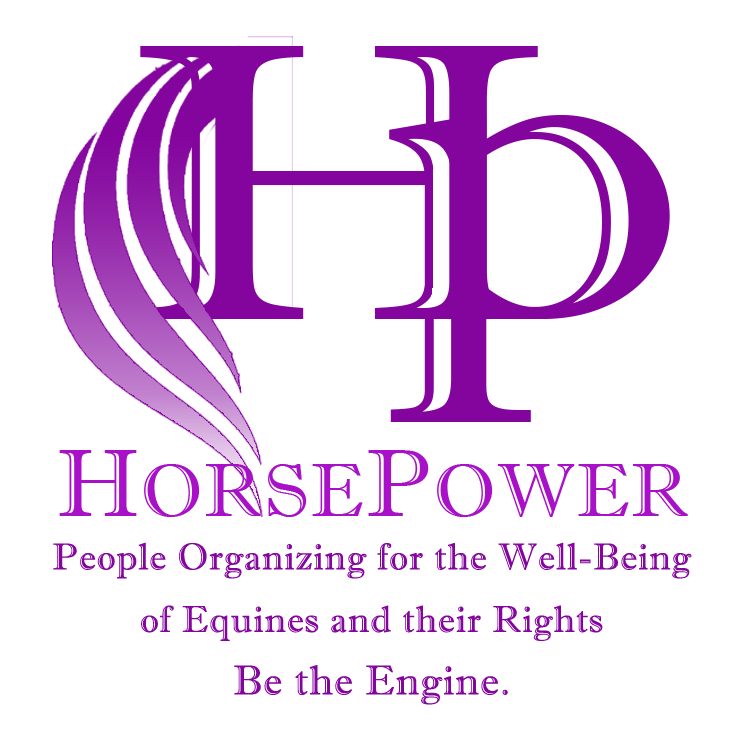Support Of SAFE ACT with Amendments
HORSEPOWER
People Organizing for the Well-being of Equines and their Rights
MEMORANDUM RE: SAFE ACT
On May 19, 2023, Representatives Jan Schakowsky (D-IL) and Vern Buchanan (R-FL) introduced the SAFE ACT (Save America’s Forgotten Equines) into the 117th Congress with the intent of permanently banning domestic horse slaughter and prohibiting the exportation of American horses for slaughter, a measure that HORSEPOWER Inc, a New York Equine Welfare Policy Organization, strongly supports but requests a clarifying amendment.
Background
In 2020, approximately 37,000 American horses were reportedly exported to Mexico and Canada for the purposes of slaughter, despite the fact that over 80% of Americans are against the practice of horse slaughter for any purposes, as many view horses as companion and performance animals, not as livestock.
While proponents of the practice will argue this is both a legitimate business and slaughter for human and animal food is a humane "end of life" option for equines no longer wanted by their owners, this is simply not true. According to equine science, it is impossible to humanely slaughter horses due to their physiology. Discarded horses facing this end will first be subjected to horrific abuses and suffering throughout the slaughter pipeline including injury and stress during transport in crowded trailers and at the end typically being alive and conscious while hoisted, cut, and left to bleed out, as documented by the USDA Office of the Inspector General in its most recent APHIS equines-for-slaughter audit report.
Beyond the animal welfare concerns, horse slaughter for human or animal consumption is dangerous. Unlike other livestock, American horses are not raised for consumption. Their meat is adulterated with FDA-banned medications and is unsafe to eat. And even people who choose not to eat horse meat can be exposed to these FDA-banned medications because These medications are present in horse slaughter byproducts--especially blood, and slaughter sludge and wastewater--and can contaminate groundwater and enter the food chain when slaughter byproducts are distributed on crops. This is a public health crisis that impacts Americans even when horse slaughter is not regulated in America.
There are humane, accessible, and practical solutions to horse population control in the United States. 92.3% of horses exported for slaughter are in good condition and can have peaceful, useful lives if purchased or adopted or retrained. The data indicate that the majority are young, healthy, and adoptable. Data collected by the Equine Welfare Database Collective states there is daily capacity for 47,000 horses in rescue facilities. This data does not include all rescues in the U.S. or any individuals who are looking to adopt. With slaughter numbers on the decline, trends and data imply there are enough homes for at-risk American horses, who, through no fault of their own, end up in the slaughter pipeline each year.
Passage of the SAFE ACT is the vehicle to ending this barbaric and unsafe practice, however, the bill faces a number of critical hurdles. It first needs to be folded into the $100 billion U.S Farm Bill, a massive piece of legislation taken up by Congress every five years that covers a myriad of initiatives from supporting farmers to ensuring that those with food insecurities don’t go hungry. Congress is currently negotiating the bill and supporters across the country are advocating that it also include the SAFE ACT. HORSEPOWER, As a leader of the effort in New York State to ban the sale or transfer of an equine for the purposes of human or animal consumption, calls upon Congress to amend the SAFE Act Bill to include the critical clarification that the ban on slaughter includes slaughter for animal consumption as well as human consumption, leaving no ambiguity in this historic legislation.
